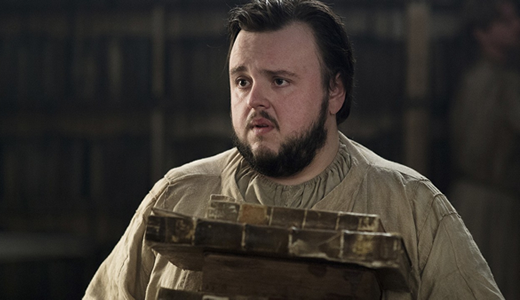HBO’s Game of Thrones wrapped up its seventh season last Sunday, gearing up for a frenetic, likely salacious sprint to the finish next year. But for all its many weaknesses, the show sometimes offers—albeit unintentionally—a kernel of truth. And I found one this week.
Despite all the criticism for its penchant for titillation and its love of grotesquerie, and despite it being on a premium cable network, the show has become one of the most-watched, and certainly most talked-about, programs on the air. As such, it’s probably not too surprising that entertainment writers have spilled about as much electronic ink on GoT as the show itself has spilled blood. Much of it laments (or celebrates) those who died or speculates on who might be on the chopping block next season. But some of it digs a little deeper. And one article especially, by The Vulture’s Kathryn VanArendonk, caught my eye.
“Game of Thrones has always cared about bodies,” VanArendonk begins. “It’s one of the most infamous things about the series—its propensity to inflict violence on its characters, its sexposition, its use of gross-out, over-the-top images of bodies in peril for shock value.”
But she also points out that, unless those bodies are being shown in extreme situations—an incestuous union, perhaps, or a visceral dismemberment—Game of Thrones often shows very little interest in what those bodies truly house: humanity. The show’s prime protagonists—the heroic Jon Snow, the beautiful Daenerys Targaryen—barely register as human at all. “The result is that Game of Thrones has hollowed out its depiction of who its characters actually are,” she writes. “They are minds, seeking power and survival. They are bodies in extremis, whenever the plot suits. But there’s no middle ground; there’s nothing between ecstasy and agony. You can lop an arm off, but no one’s going to get a paper cut.”
And then she mentions an exception in Sam Tarly, a frumpy afterthought of a character who skates along the periphery of the show’s larger-than-life players. She writes:
At one point in the series, Sam’s physicality was frequently used as a foil for Jon Snow’s more capable, more heroic physical facility. But while Jon is now right at the center of the show’s most suspenseful stories, his bodily reality is a void. He can survive anything, including frozen lakes, stabbings, and death itself. Between Sam and Jon, which character do we feel more connected to? Whose physical safety feels more urgent? Who are we most fond of as a person, not just as a figure on a map?
The only time I watch Game of Thrones is to review episodes for Plugged In. But nevertheless, this observation struck me as true. Fans may root for the heroic Jon Snow. But we feel for modest, flawed, Sam Tarly.
And I think, in that, we find a lesson for ourselves.
I think a lot of Christians want to present ourselves to the world as a Jon Snow-like character. We want to show the world our virtue and goodness. We believe we’ve been given the secret to a life of meaning, that we have all the answers. We want the folks around us—those who might be struggling or hurting—to be attracted to us. To be curious about our goodness and the hope that we have in our hearts.
That’s great, to a point. It really is.
But you know what I feel when I’m struggling or hurting, and I find myself in the presence of a Christian Jon Snow? Insecure. Unworthy. He (or she) can’t understand my problems, I think to myself. He might find them silly. He might judge me.
When I hurt, I want to find people who’ve been hurt, too. When I ask questions, I want to talk with someone who’s asked the same questions … not someone who seems to have been born with all the answers.
I’m not saying this is the right response. But it is an honest one. And I don’t think I’m alone.
I think the Apostle Paul understood as much. He talked about the thorn in his flesh, and how God’s “power is made perfect in weakness. … For when I am weak, then I am strong (2 Corinthians 12:9, 10).” And in his first letter to the Corinthians, Paul wrote something similar: “I was with you in weakness and in fear and much trembling, and my speech and my message were not in plausible words of wisdom, but in demonstration of the Spirit and of power, so that your faith might not rest in the wisdom of men but in the power of God.”
When do we feel close to even the most heroic heroes of Scripture? I think it’s when they’re at their most vulnerable, their most human. I feel closest to David not when he’s slaying giants or leading armies, but when he’s weeping over his son. I find Moses most sympathetic not as an Egyptian prince or wrathful leader, but as a simple shepherd, scared to follow God’s call. Jesus became human to connect with us: There’s a reason why one of the most poignant verses in the whole Bible is just two words long: “Jesus wept.”
We want to help people. We want our faith to be attractive to others. But we sometimes fail to understand what people need to see from us. Sometimes, I think when we’re at our most vulnerable, our Christianity is at its strongest. When we’re feeling ugly, that’s when our faith looks the most beautiful.
I think that’s why we connect with the Sam Tarlys of the world. The imperfect people, the approachable people.
I’ve been pretty critical of Game of Thrones. This kernel of truth doesn’t change my mind about it. But truth is truth no matter where it’s found. A truth that points to the fact that God’s power is made perfect in weakness, as Paul wrote. Which means that, given all of our histories and hurts, God’s power is perfect indeed.






Recent Comments